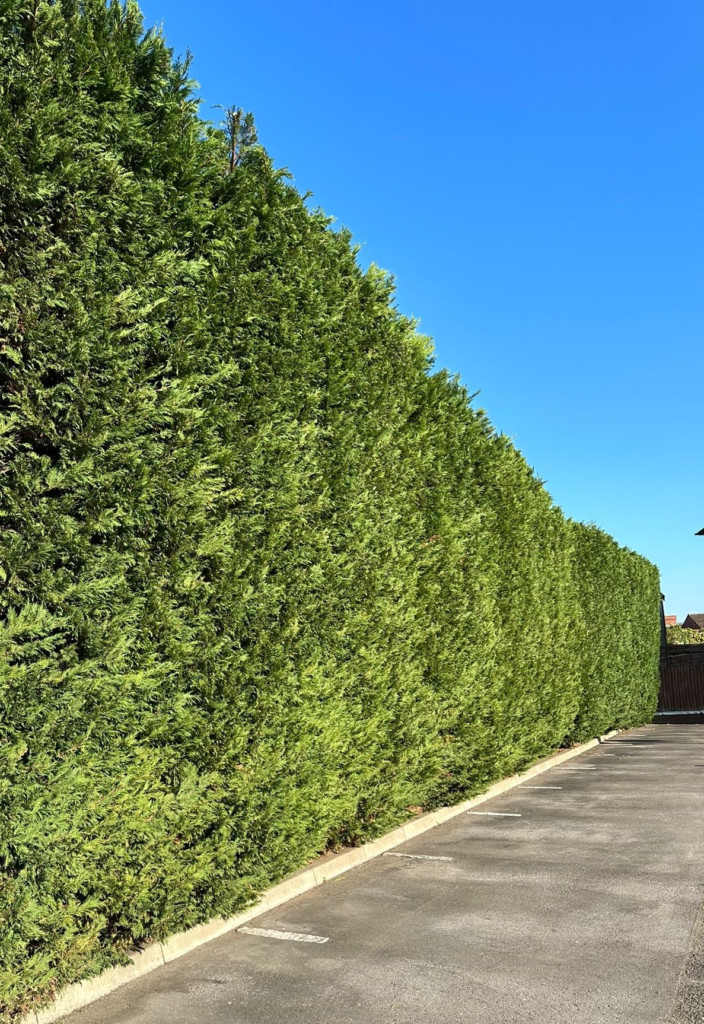Living and working next to a road or a busy development is never fun. They tend to produce a constant stream of noise that quickly goes from being annoying to being a hazard to the health of everyone inside. Whether you’re running a business park, a care home or a small office, an abundance of noise from busy roads or drawn-out building work is incredibly disruptive, and building a big concrete barrier to deaden the sound isn’t exactly ideal.
But did you know that there is, in fact, a solution? And it might be a lot greener than you think.
The Laws on Noise
Unfortunately, there are no legal limit to road noise under UK law. However, it is something that’s taken into account when new houses, offices and even other roads are going through the planning phase. In fact, land purchased for relief roads have to include a compulsory purchase of excess space to build noise pollution barriers.
However, while there aren’t rules on road noise, there are rules about cars that effectively limit the noise they make. For example, there have been new laws on tyres since November 2012. Since then, tyres have been graded to show how noisy they are, and there are even restrictions on how much noise a tyre is allowed to make. It’s also illegal to modify the exhaust system that’s already been approved to meet environmental safety standards to make it noisier. When people ignore these regulations, the police can take action on the driver for creating excessive noise.
Sadly, that doesn’t mean living or working next to a road is quiet. Business owners running companies next to a major road network, whether it’s a carriageway, main road or even a motorway, will often say that the noise impact their work.
Using Nature to Prevent Noise
There has been a lot of research done on how to reduce noise from roads. Concrete barriers and other similar solutions have been tried and tested, and are common in areas with airports or busy motorways. But there is another option that anyone responsible for the upkeep of their own land can put into place.
Research in a variety of American cities has shown that vegetation banks aren’t just nice to look at and good for the environment – they’re also a helpful barrier that prevents excess noise. Plants essentially absorb and deflect the sound, so less gets through to your main grounds. The more plants you have, the less sound will get through. They’re sometimes called a ‘sound belt’ or a ‘buffer’, and a simple 7 metre thick belt can reduce the noise pollution by 10 decibels. If you’re struggling with road noise it’s a really simple and cost-effective solution.
This works by planting a range of evergreen trees, hedges and shrubs in between your building and the road itself. They have to be evergreen plants because they will be prominent and flush with greenery all year round. Other trees that shed their leaves every year won’t be any use in deadening noise! A collection of trees and shrubs can be really effective at reducing the noise from roads, and can even absorb some of the carbon dioxide being pumped out by cars too.
Effective natural sound barriers should be planted as close to the source of the noise as you can. If you have banks that slope away from the road, planting at the top of these can make them even more effective. When you’re planning them out, make sure you think about maintenance too. How are you going to make sure these plants don’t grow out of control and still look nice? This might mean installing a set of steps if they’re on a bank, or just including their pruning in your regular grounds maintenance plan.
So What Should You Plant?
The best bit is, you don’t just have to stick to a belt of trees to get this effect. Hedges, evergreen shrubs, even ground cover plants can all help deaden the noise and keep things quieter inside your grounds. A mixture is even better, as it gives you a better coverage of height as well as texture for sound to bounce off and be absorbed by. A few of our favourite options include:
- Green beech hedges
- Hornbeam hedges
- Spruce trees
- Acers
- Leylandii
- Bamboo hedge (which can grow to an impressive height!)
- Mixed broadleaf and evergreen conifers
- Holly
- Eunonymus Japonicus (perfect for the low element as they only grow around 4 metres tall)
And a few more besides. We love the idea that nature can be used not just to make your grounds more attractive and efficient, but also to make it a nicer place to work! If you’re looking at planting a natural sound barrier, or would like to know more about how regular grounds maintenance can help you with improving your organisation’s wellbeing, just get in touch with the team today to arrange your free site visit.


